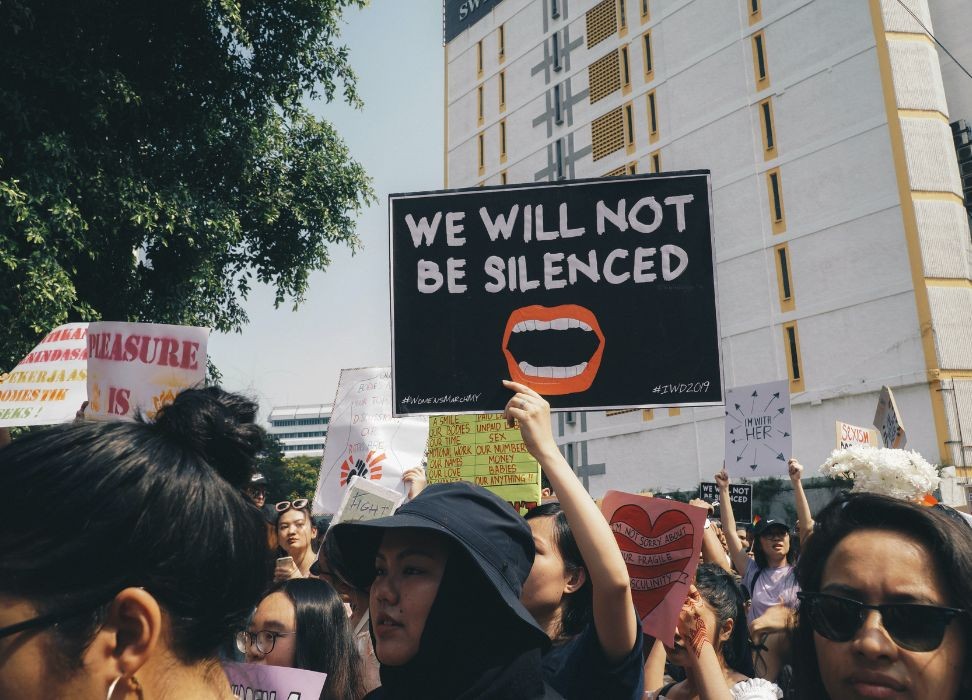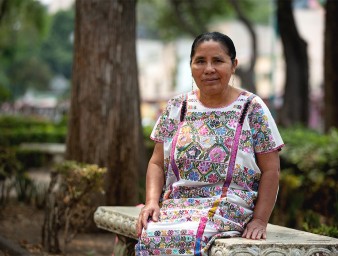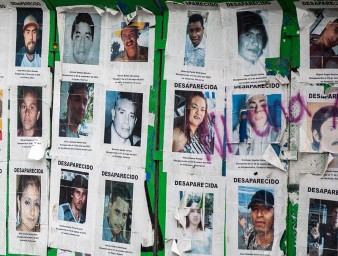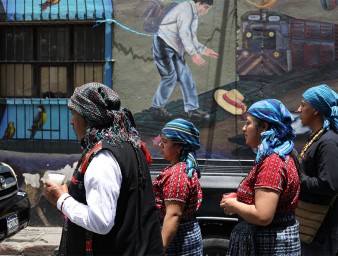Voices of women and girls essential to fight for human rights
18 November 2022

“Around the world, we see stigmatization, harassment and outright attacks used to silence and discredit women who are outspoken as leaders, community workers, human rights defenders and politicians,” said Peggy Hicks, Director of the Thematic Engagement, Special Procedures and Right to Development Division of the Office of the UN High Commissioner for Human Rights, during the annual discussion on gender integration at the Human Rights Council.
The discussion explored gender-based barriers to freedom of opinion and expression, and how theycan be dismantled in a comprehensive and sustainable manner, taking into consideration the intersecting forms of discrimination women, girls and people with diverse gender identities are subjected to.
“The voices and courage of women and girls have been, are, and will continue to be essential to the fight for human rights protection,” said Hicks.
Dangers of speaking out
A joint International Center for Journalists (ICFJ)-UNESCO Global Study from late 2020 looking into the safety of women journalists found that 73 percent had experienced online violence, with an additional 20 percent reporting offline attacks and abuse connected to episodes of online violence.
“As a young trainee journalist, I was sexually harassed,” said Julie Posetti, Global Director of Research at the International Centre for Journalists. “That was my first shocking wake-up call with regard to the ways in which women in newsrooms … continue to confront significant sexism and misogyny.”
Women, girls and people with diverse gender identities continue to face structural, systemic and legal barriers to the realization of the right to freedom of opinion and expression, said Irene Khan, Special Rapporteur on the promotion and protection of the right to freedom of opinion and expression. This is due to gender stereotypes, patriarchal structures and ensuing discrimination, attempting to suppress, control and punish the voices of women, girls and people with diverse gender identities, she added.
“While all women face such threats, female politicians, journalists, human rights defenders and feminist activists, especially those with intersecting and marginalized identities, are particularly targeted by State and non-state actors”, said Khan.
For women in politics, the main barrier on freedom of opinion and expression is gendered violence, according to the Inter-Parliamentary Union. In three of their studies, the organization found more than 80 percent of women parliamentarians have experienced psychological violence, in the form of sexist attitudes and remarks aiming to silence, belittle, mock and degrade women in politics, or to judge their physical appearance.
This violence is directed specifically at women as a group, and aims to exclude them from the political arena, said Mariana Duarte, Programme Officer of the Gender Partnership Programme at the Inter-Parliamentary Union.
“Whether it is hateful speech, sexist comments, sexual harassment or physical assault, violence targeting women leaders is a top deterrent to equal participation in public and political life,” she said.
“
The voices and courage of women and girls have been, are, and will continue to be essential to the fight for human rights protection.
“
Peggy Hicks, Director of the Thematic Engagement, Special Procedures and Right to Development Division of UN Human Rights.
The difficulties extend to women human rights defenders.
Mitzi Jonelle Tan is a young climate justice activist from the Philippines and the Convenor and International Spokesperson for the Youth Advocates for Climate Action Philippines. She said that young girls fighting for human rights and climate justice, especially those from economically marginalized communities, are often belittled, pushed aside, and tokenized.
“At best these young women become a photo opportunity for world leaders and policymakers instead of actually listening to our demands for equity, and at worst being physically harassed and silenced,” Tan said.
Internet is a battleground
Today, the threat to women and girls who speak out on human rights issues has increasingly come from the digital space, said Khan.
“The Internet has become the new battleground in the struggle for women’s rights, amplifying the opportunities for women to access information and express themselves, but also creating new risks of repression and inequality,” said Khan.
Online violence against journalists is one of the most serious contemporary threats to press freedom and the safety of women journalists internationally, Posetti said. Examples of this online violence include threats of rape and murder, wide-ranging forms of digital harassment, and psychological abuse. It is almost always misogynistic, but it is at its worst when it intersects with other forms of discrimination, such as racism, religious bigotry and homophobia, she added.
“These are not just words on the Internet,” Posetti said. “They are damaging, dangerous aspects of a pattern of behaviour that potentially deprives the whole of society of female voices.”
How to dismantle gender-based barriers
The obstacles facing women, girls and people of diverse gender identities ability to claim their rights to freedom of opinion and expression can be overcome. Speakers during the discussion provided a number of recommendations.
In order to overcome online and offline gender-based barriers in a comprehensive and sustainable manner, Governments must abolish laws, policies and practices of gendered censorship and be more proactive in dismantling structural and systemic roots of gender discrimination, said Khan.
Social media platforms must also be held accountable for gender-based online violence via effective, rights-respecting regulatory responses from States, said Posetti.
Digital spaces must be safe and accessible for all women, Khan added, while also stressing that there must be no trade-off between women’s rights to be free from violence and the right to freedom of opinion and expression.
Duarte highlighted the importance of using existing international human rights mechanisms for addressing violence against women in politics.
Tan called on the Human Rights Council to support and empower women and to push member states to prioritize girls' education, especially for those from the most marginalized classes.
“Marginalized women need to be empowered with education and information and given space in order to be active members of society so girls’ education must be a priority,” she said.
Hicks called on all sides to do more to protect women, girls and people of diverse gender identities in public life.
“All these barriers contribute to the progressive exclusion of women and girls from the public sphere and from playing a transformative role in society. This urgently needs to change,” she said.



